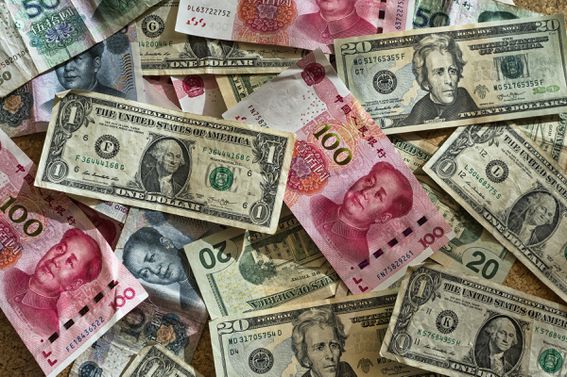For more than 80 years, the US dollar has been the world’s most powerful currency. This reserve currency status offers the United States extraordinary control over the global economy, capable of crippling any country’s economy within a fortnight. And as a result of this power, it has controlled large players such as Russia and China.
The dollar’s dominance in the globe is tied to its use as a reserve currency of trust, with the United States starting in the early 1970s that if you have dollars, we will swap its worth in gold for $35 per ounce. As a result, two countries who may or may not trust each other can now trade freely. This may be traded for gold in the United States. If the transaction was in dollars, the US ensured the value of the dollars with gold.
However, in 1971, Richard Nixon ended this gold standard where everyone was free to choose any currency for freedom. He said, “The strength of a nation’s currency is based on the strength of that nation’s economy. And the American economy is by far the strongest in the world”.
Nevertheless, nearly all countries continued to use the dollar as it was the only currency that could be used to purchase Saudi oil. In 1945, US President Franklin D. Roosevelt struck the deal of the century with the Saudi monarch, in which the US guaranteed Saudi Arabia’s security in exchange for the Saudi king agreeing to sell oil in US currency. So, to purchase oil, states required US dollars which was another factor contributing to the Dollar’s supremacy.
Read More: Rise of Drone Warfare in 21st Century
Owing to these circumstances, the dollar has dominated global trade for decades. In 1999, the US dollar held 71% of the worldwide reserve currency market. However, in the last 10 years, it has fallen to less than 59%. China and Russia have devised a grand strategy to end the dollar’s global supremacy and have been working on it for the past decade. And, if China and Russia’s approach succeeds, a new reserve currency in the form of the Chinese Yuan will emerge in the next ten years. As relations with Washington deteriorate, Beijing and Moscow have agreed to trade in their national currencies, the Russian Ruble, and the Chinese Yuan, bringing them one step closer to abandoning the dollar.
Russia has been planning to abandon the dollar since 2013. Treasury-debt in the United States has fallen from $150 billion in 2013 to $3.98 trillion in 2021. Even though Saudi Arabia and other nations were selling oil and gas in Dollars, Russia is one of the world’s major producers of both. Russia asked that nations purchase oil in Rubles, thus most European countries were forced to do so to avoid an energy catastrophe. It implies that nations who want oil must deposit their money with Russia’s central bank, resulting in an increase in the Petro-ruble rather than the Petro-dollar.
China, on the other hand, has leveraged through its three-trillion-dollar Belt and Road Initiative. There are 165 countries involved in this initiative, and they owe China a total of 385 billion dollars. Since the start of the BRI initiative, China has issued 14% of all loans in its currency, without relying on the dollar. China can deliberately utilize its debt and trade power to demand that these countries repay loans in Yuan rather than Dollars.
Pakistan, Myanmar, Cambodia, and Russia have also agreed to conduct bilateral yuan trade. Russia firmly backs China and has already designated the Chinese Yuan as the reserve currency. China is also negotiating bilateral currency exchange agreements with the countries to promote the Yuan over the dollar. Beijing has inked bilateral currency swap agreements worth more than 35.5 trillion yuan with more than 40 countries around the world. Furthermore, Saudi Arabia is in talks with China about pricing part of its oil sales in Yuan. This can result in a strong demand for yuan, with the extra yuan being invested in Chinese bonds, making the Chinese economy more powerful and less reliant on the dollar.
Author:
Muhammad Wasama Khalid is currently working as a researcher and correspondent at the Global Affairs International magazine. He tweets at @Wasama Khalid and can be reached at Wasamakhalid@gmail.com
- Global Defense Insighthttps://defensetalks.com/author/umair/
- Global Defense Insighthttps://defensetalks.com/author/umair/
- Global Defense Insighthttps://defensetalks.com/author/umair/
- Global Defense Insighthttps://defensetalks.com/author/umair/













